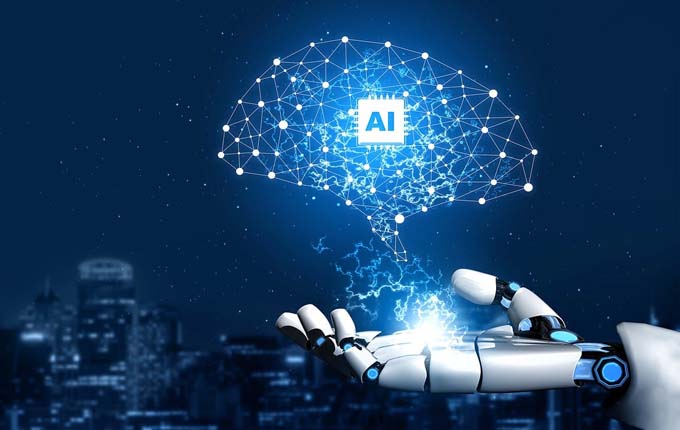Global Machinery & Equipment Report 2024 from Bain
Machinery and equipment manufacturers worldwide can increase their productivity by 30 to 50 percent by making consistent use of innovations in the areas of artificial intelligence (AI), lean, digitalization and sustainability - the backbone of the so-called "factory of the future". This was revealed in the second edition of the "Global Machinery & Equipment Report" by the
international management consultancy Bain & Company.

From supply chain problems and rising customer expectations to increased competition in rapidly changing markets - mechanical engineering companies are under enormous pressure in many respects. As a result, the focus of management is increasingly shifting towards the implementation of new digital tools and Industry 4.0 technologies such as AI, robotics and additive manufacturing. In addition, companies are relying on proven methods of operational excellence.
"Machine and plant manufacturers often still rely on conventional lean production approaches," explains Michael Staebe, co-author of the study and head of the Industrial Goods and Services practice group in the DACH region. "Although many companies are examining which digital tools and Industry 4.0 technologies they can use and how they can best benefit from sustainability measures, they usually do this in organizationally separate silo structures without an overall strategy."
To truly become a successful factory of the future and achieve productivity gains, mechanical engineering companies must face three key challenges. Firstly, they should integrate the latest Industry 4.0 technologies into their existing production processes. Secondly, they need to integrate Operational Technology (OT) and Information Technology (IT) from an operational and systems perspective. And finally, it is crucial to align sustainability and circular economy with overall business goals and optimize production processes accordingly.
AI is becoming a top priority for machine manufacturers
Many mechanical engineering companies are now focusing on AI solutions. In a global Bain survey of industry executives, 75% stated that the introduction of new technologies such as AI in research and development (R&D) is their top priority. If companies are first-time users of AI, they use it primarily in procurement, assembly, maintenance, quality control and warehouse logistics. Companies with several years of AI experience, on the other hand, prefer to use this technology to make their supply chains more resilient and sustainable in the face of ongoing macroeconomic and geopolitical turbulence.
While the potential applications of AI are developing rapidly across industries, the Bain study highlights the far-reaching potential of generative AI in particular for the realignment of the manufacturing sector, its productivity and its processes. For example, generative AI can generate insights from unstructured data that can lead to dramatic improvements in productivity, customer service and financial performance. Specific areas where engineering companies are currently using AI particularly effectively include minimizing assembly errors and improving quality control, increasing productivity and streamlining warehouse management.
Focus shifts from products to digital solutions
The manufacturing industry now consumes more chips and components for the Internet of Things (IoT) than any other sector - which indicates, not least, that machine builders need digital
tools quickly. What's more, according to the Bain study, those companies that lead the way in implementation can even double their total shareholder return compared to the industry average.
In light of this development, many mechanical engineering companies are moving away from manufacturing standard products for a global market towards more customized solutions tailored to selected industries. As part of this reorientation, they are focusing on a smaller number of customers in specific fields of activity, while at the same time increasing the range of products offered to these customers and making the supply chain less fragmented.
"The markets of the future will be defined by the targeted servicing of promising customer segments and no longer by products alone," summarizes mechanical engineering expert Staebe. "In this new era, it's all about creating holistic solution packages consisting of machines, digital offerings and associated services. This enables machine manufacturers to gain a competitive advantage that is difficult to catch up on."
Combining the circular economy with IoT
In addition to digital tools, the topic of the circular economy has become increasingly important. A recent cross-industry Bain survey of around 400 companies worldwide revealed that 47% of large mechanical engineering companies have already made commitments in this regard. However, most initiatives remain narrow and focus on recycling and waste reduction. "Many companies see the circular economy merely as a regulatory necessity," says Staebe. "Some, on the other hand, have already seen it as an opportunity to create value."
According to the Bain study, companies that have integrated the circular economy into their operating processes and combine it with IoT technologies achieve particularly extensive efficiency and sustainability gains. Companies that already have circular supply chains, for example, benefit from up to 28% less material consumption, which not least reduces their dependence on scarce raw materials. These pioneers are also more resilient: Two thirds of companies with circular supply chains did not suffer any restrictions during the corona pandemic - compared to just 2 percent of those with a conventional supply chain approach.
The IoT data collected in this context also offers enormous opportunities to maintain the value and service life of their machines and production facilities for as long as possible, improve energy efficiency and reduce resource consumption. "Circular business models rely on connected machines and the data they generate," emphasizes Bain Partner Staebe. "With the right strategy, leading companies can tap into new customer groups and revenue streams over the next 20 years or so and make their supply chains more resilient."
Source: www.bain-company.ch









